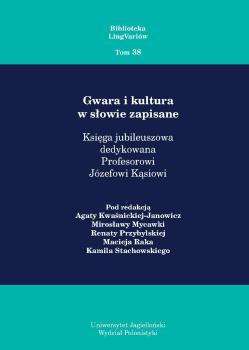Nazwy zadymki śnieżnej z formantem -awa w gwarach polskich .......... 383
Streszczenie
NAMES FOR A SNOWSTORM WITH THE -AWA FORMANT IN POLISH DIALECTS
Nouns with the -awa formant can be divided into two groups based on their meaning. The first and larger group contains names for snowstorms which have substantial documentation and are fairly well researched. The second group which includes words with other meanings. This paper presents formations with the -awa suffix and the meaning ‘snowstorm’. Other meanings of formations with -awa will be the subject of a separate study. Nouns with the -awa formant and the meaning ‘snowstorm’ are generally formations derived from verbs which denote snowfall, and sometimes strong air movements accompanied by snowfall. Thus, we are dealing with deverbal action nouns. A description of dialectal names for ‘snowstorm’ was prepared more than 50 years ago by Władysław Kupiszewski in his book Słownictwo meteorologiczne w gwarach i historii języka polskiego (‘Meteorological vocabulary in the dialects and history of the Polish language’; PJPAN LVII). Since those distant times, several dialectal atlases and dictionairies have been published, which have significantly enriched the documentation of our topic. Therefore, I decided to examine these newer publications and supplement the data from Kupiszewski’s work. The name kurzawa is present in nearly all Polish dialects. In the mountainous parts of southern Lesser Poland, the primary term is kurniawa, also sporadically appearing in southern Podlasie, alongside which the terms kurzniawa, dujawa, fujawa, chujdawa, and chajawa were recorded. The term chujawa was recorded in six locations in Lesser Poland (near Wadowice, Bochnia, Olkusz, Kolbuszowa, Niskie, and Włoszczowa). The term burzawa appeared twice (near Mielec and Sandomierz), krętawa four times (near Włodawa and Radzyń Podlaski), and zygawa once (to the northwest of Kielce). In conclusion, I must say that Kupiszewski’s description is accurate. The additions are few.





